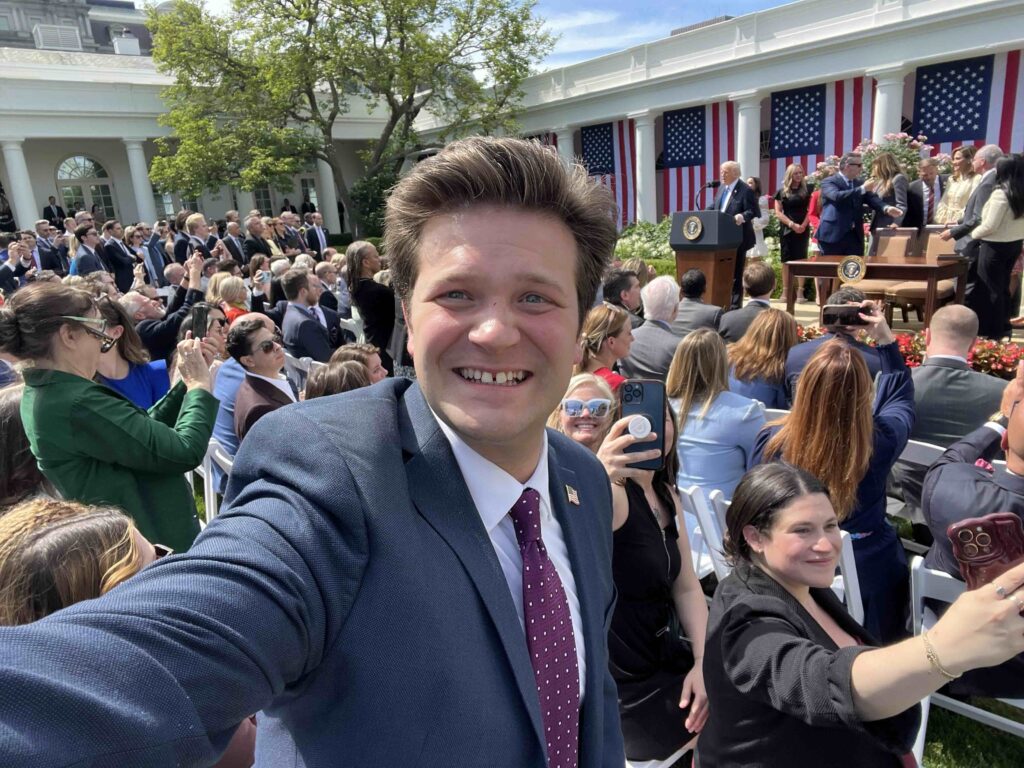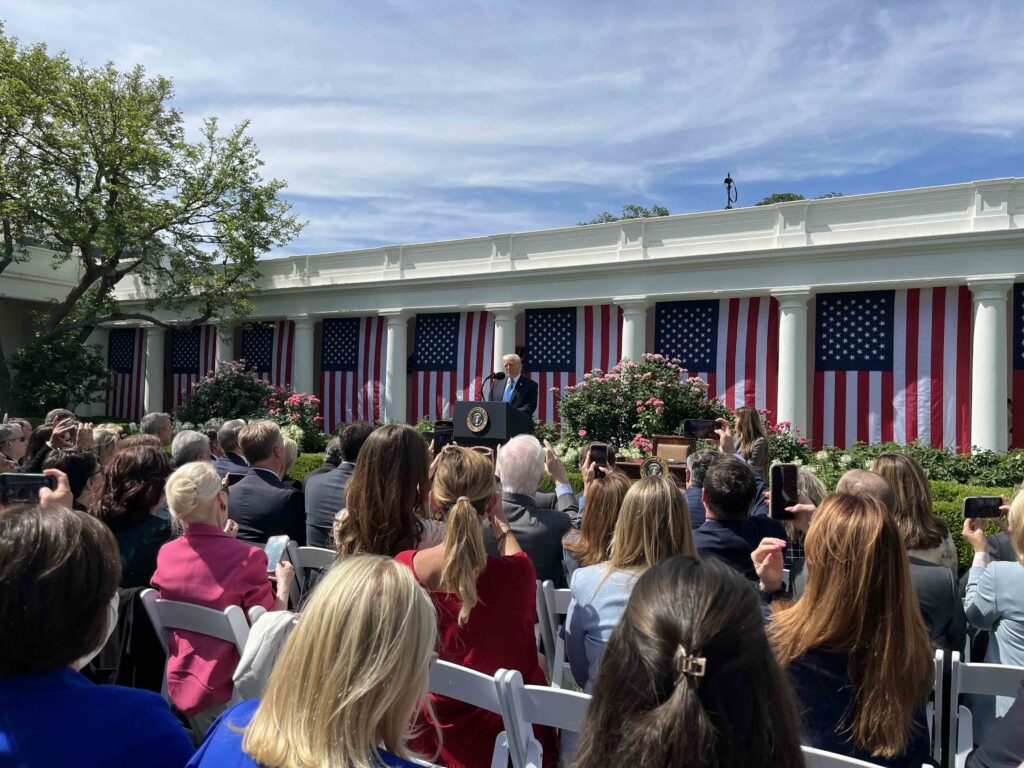MassGOP Celebrates Passage of Take It Down Act at White House

MassGOP Celebrates Passage of Take It Down Act at White House
5.19.25
Washington, D.C. — The Massachusetts Republican Party was represented at Monday’s White House signing ceremony for the signing of the Take It Down Act, a new law that adds federal criminal penalties for non-consensual intimate imagery (NCII) including revenge porn, AI-generated deepfakes, and mandates social media companies and similar websites remove that content within 48 hours of notice from a victim.
Republican State Committeeman Alex Hagerty, a survivor who spearheaded the multi-year push for the passage of similar legislation in Massachusetts, was at the White House to mark the occasion.
“As a survivor of revenge porn, and strong advocate for the passage of revenge porn laws in Massachusetts, I had the privilege to witness ‘The Take It Down Act’ signage into law in the Rose Garden at the White House with many survivors and families of those who lost loved ones to this heinous crime. My heart is filled with so much joy that our world may see a more compassionate future. The abuse each of us survivors isn’t indicative of our lives. Our strength, love, and resilience defines our destinies. Today we made our voice heard loudly!” said Hagerty. “Under the law, survivors, victims and their families are entitled to justice.”


BACKGROUND:
- The Take It Down Act is a bipartisan bill authored by Sens. Ted Cruz (R-TX) and Amy Klobuchar (D-MN) that adds a federal standard for the first time to the classification of non-consensual intimate imagery (NCII) crimes.
- The legislation builds on 2022 legislation that empowers affected individuals to pursue costly civil litigation to have their non-consensual images removed from third-party websites.
- Specifically, the Take It Down Act protects and empowers real and deepfake NCII victims by:
- Criminalizing the publication of NCII in interstate commerce. The bill makes it unlawful for a person to knowingly publish NCII on social media and other online platforms. NCII is defined to include realistic, computer-generated pornographic images and videos that depict identifiable, real people. The bill also clarifies that a victim consenting to the creation of an authentic image does not mean that the victim has consented to its publication.
-
- Protecting good faith efforts to assist victims. The bill permits the good faith disclosure of NCII, such as to law enforcement.
-
- Requiring websites to take down NCII upon notice from the victim. Social media and other websites would be required to have in place procedures to remove NCII, pursuant to a valid request from a victim, within 48 hours. Websites must also make reasonable efforts to remove copies of the images. The Federal Trade Commission is charged with enforcement of this section.
-
- Protecting lawful speech. The bill is narrowly tailored to criminalize knowingly publishing NCII without chilling lawful speech. The bill conforms to current First Amendment jurisprudence by requiring that computer-generated NCII meet a “reasonable person” test for appearing indistinguishable from an authentic image. (Senate Commerce, 4/28/25)
###
